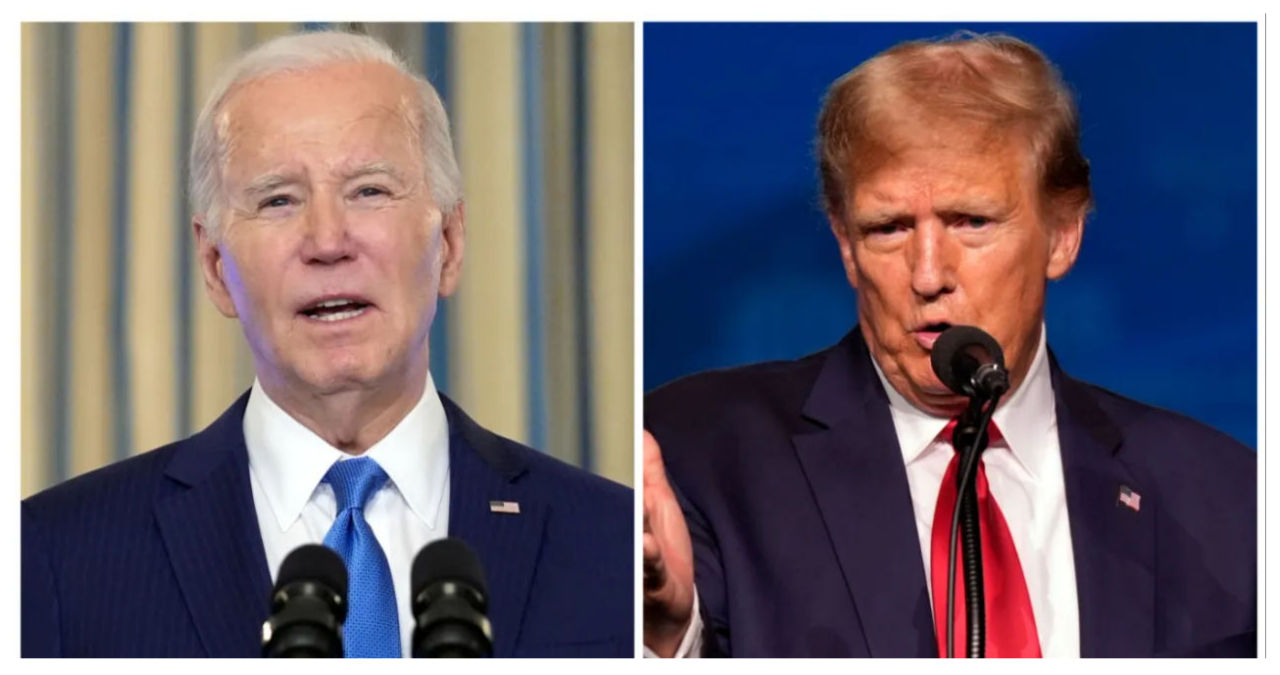A recent poll reveals that President Joe Biden and former President Donald Trump are currently in a statistical tie in Michigan, with about seven months remaining until the next presidential election.
According to a recent poll conducted by WOOD TV8, Emerson College Polling, and The Hill, it was found that 44% of respondents are in favor of Biden, while 45% support Trump. With a margin of error of plus or minus 3 percentage points, the result indicates a statistical tie between the two candidates. Approximately 11% of respondents remained undecided.
The numbers remained largely the same compared to a poll conducted in February.
Among independent undecided voters, Trump has a slightly higher level of support, with 40% backing him compared to 35% for Biden. However, a significant 26% of these voters remain undecided. When pressed to make a decision, the Emerson College Polling found that the race was evenly split among these undecided voters.
In a recent poll, it was found that 65% of respondents expressed satisfaction with having Biden and Trump as their options in the upcoming November election. However, 35% of the participants expressed a desire for a third-party candidate to be included. Despite the availability of alternative candidates, the majority of people still showed a preference for either Biden or Trump.
According to the survey, opinions are divided on whether Trump should be allowed to run for president again following the riot at the U.S. Capitol on January 6, 2021. Approximately 51% of respondents believe that he does not deserve to run, while 49% believe that he does.
Michigan is poised to play a crucial role in the upcoming general election. According to 270towin.com, a website that monitors polls and predicts electoral votes, Democrats currently have the advantage with 226 electoral votes leaning in their favor, while Republicans have 235. To secure victory, a candidate must obtain 270 electoral votes. At present, Michigan, Pennsylvania, and Wisconsin are all considered battleground states, with 15, 19, and 10 electoral votes respectively. Winning all three of these states would be enough for a candidate to claim the White House.
Michigan’s open Senate seat, currently held by Sen. Debbie Stabenow, D-Lansing, who has chosen not to seek reelection, is yet to have a confirmed matchup. U.S. Rep. Elissa Slotkin of Holly appears to be leading the race for the Democratic nomination, while several Republicans have also expressed their interest in the position.
According to the Emerson College Polling survey, respondents were asked about several potential races. One of the closest races involved Slotkin and former U.S. Rep. Mike Rogers, who were statistically tied with 41% favoring Slotkin and 39% favoring Rogers.
Slotkin had a higher percentage of leads compared to businessman Sandy Pensler (41% versus 37%), former U.S. Rep. Justin Amash (43% versus 35%), and former U.S. Rep. Peter Meijer (42% versus 34%).
Between 20% and 24% of all potential matchups had undecided voters.
According to the latest poll, the economy remains the primary concern for the respondents, with 38% expressing their worry. Immigration comes in second at 11%, followed closely by threats to democracy and health care, both at 10%. Affordable housing is a concern for 9% of the respondents, while education and abortion access are at 7% and 6% respectively. It is interesting to note that voters showed support for Trump on issues related to the economy and immigration, while they favored Biden when it came to addressing threats to democracy and health care.
In terms of job ratings, Biden received a positive rating from 39% of the respondents, while 52% had a negative opinion. On the other hand, Governor Gretchen Whitmer fared much better, as 49% of the respondents gave her a favorable rating, while 42% had a negative view. However, when it came to the overall direction of Michigan, around 46% of those polled believed that the state was on the wrong track, while approximately 41% felt that it was headed in the right direction.
Emerson College Polling conducted a survey of 1,000 registered Michigan voters through phone, email, and online channels from March 14 to March 18. The data was collected by engaging respondents who identified themselves as Democrats (38%), Republicans (37%), and independents (26%).



